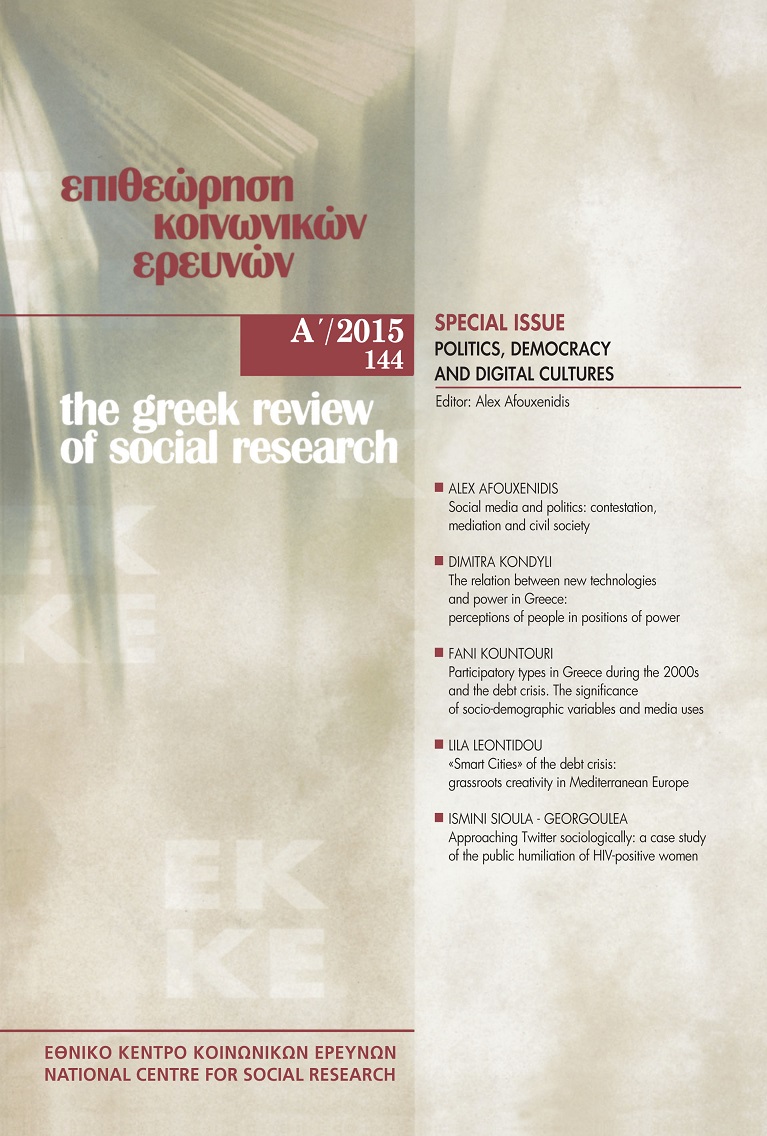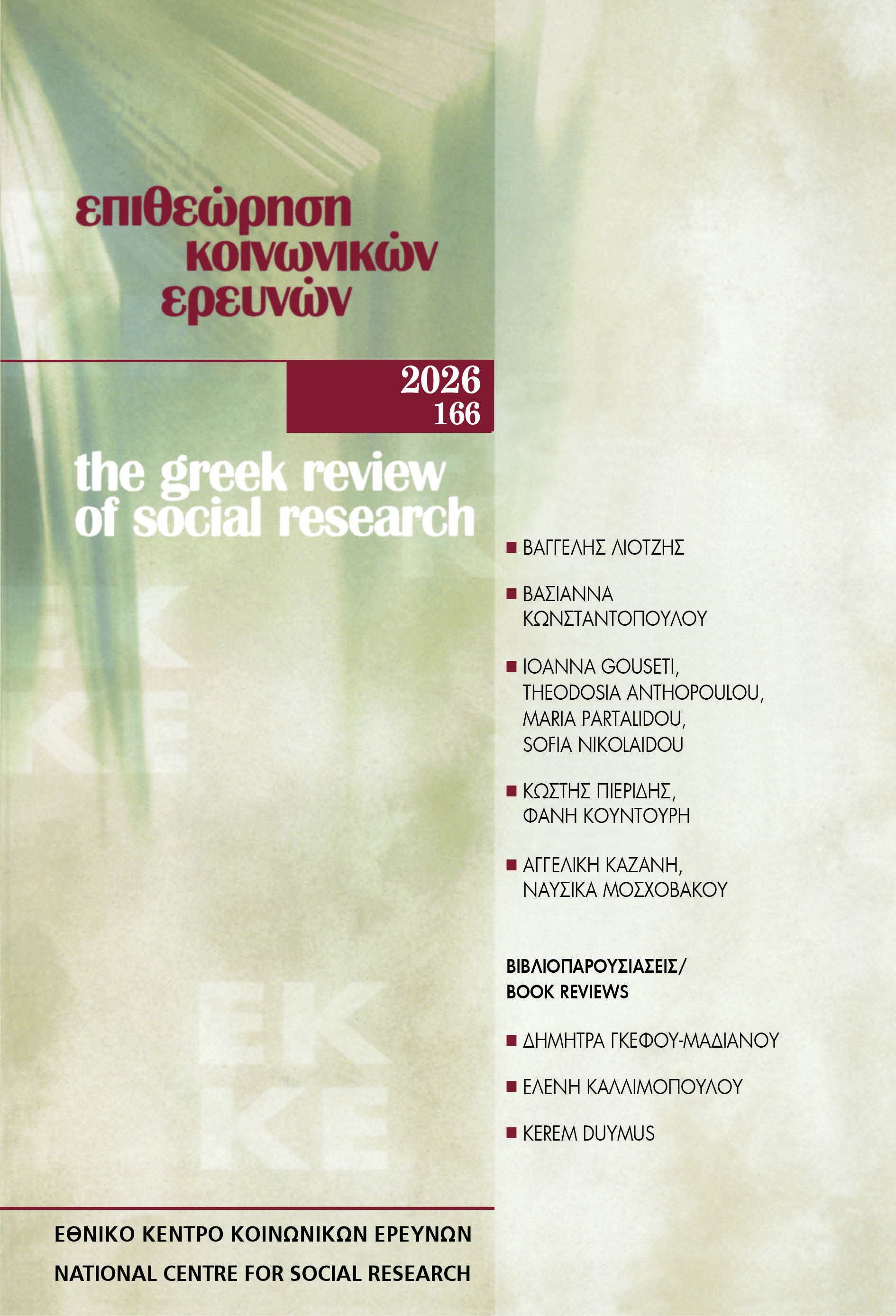Participatory types in Greece during the 2000s and the debt crisis. The significance of socio-demographic variables and media uses

Abstract
Το παρόν άρθρο στοχεύει στην ανάδειξη δύο σημαντικών μετασχηματισμών που έλαβαν χώρα στην Ελλάδα κατά τη διάρκεια της κρίσης δημοσιονομικού χρέους. Ο πρώτος σχετίζεται με την κατάρρευση σημαντικών μεταβλητών πολιτικής εμπιστοσύνης, πολιτικού ενδιαφέροντος και πολιτικής συμμετοχής. Ο δεύτερος σχετίζεται με την αναβίωση της πολιτικής δέσμευσης όπως υποδεικνύουν νέες μορφές πολιτικής συμμετοχής. Στόχος μας είναι η παραγωγή μιας τυπολογίας μορφών πολιτικής συμμετοχής και η διερεύνηση της μεταβαλλόμενης επιρροής των κοινωνικο-δημογραφικών μεταβλητών και των μιντιακών χρήσεων. Πιο ειδικά, θα διερωτηθούμε αν η κρίση χρέους συνέβαλε στην εμφάνιση ενός νέου πολιτικού υποκειμένου σε ένα περιβάλλον πολιτικής απαξίωσης, αν υπάρχουν συγκεκριμένες ιδιότητες (φύλο, ηλικία, εκπαιδευτικό επίπεδο) που συνδέονται με τις μορφές πολιτικής συμμετοχής και αν, ειδικά, η χρήση του διαδικτύου μπορεί να συμβάλει στην ενεργοποίηση ορισμένων από αυτές.
Article Details
- How to Cite
-
Kountouri, F. (2015). Participatory types in Greece during the 2000s and the debt crisis. The significance of socio-demographic variables and media uses. The Greek Review of Social Research, 144, 45–67. https://doi.org/10.12681/grsr.8623
- Section
- Articles

This work is licensed under a Creative Commons Attribution-NonCommercial 4.0 International License.
Authors who publish with this journal agree to the following terms:
- Authors retain copyright and grant the journal right of first publication with the work simultaneously licensed under a Creative Commons Attribution Non-Commercial License that allows others to share the work with an acknowledgement of the work's authorship and initial publication in this journal.
- Authors are able to enter into separate, additional contractual arrangements for the non-exclusive distribution of the journal's published version of the work (e.g. post it to an institutional repository or publish it in a book), with an acknowledgement of its initial publication in this journal.
- Authors are permitted and encouraged to post their work online (preferably in institutional repositories or on their website) prior to and during the submission process, as it can lead to productive exchanges, as well as earlier and greater citation of published work (See The Effect of Open Access).



